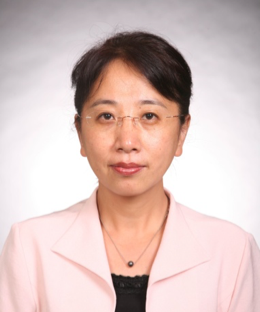Gastroenterology
Department of Gastroenterology
Overview
The Department of Gastroenterology at Peking University People's Hospital was founded in 1990. Under the leadership of former directors Professor Zhao Jingtao, Professor Qu Hanting, Professor Liu Yulan, and the current director Professor Chen Ning, it has become a leading center for the diagnosis, treatment, scientific research, and teaching of digestive system diseases in China. Currently, we have 29 doctors, 1 associate researcher, 2 technicians and 20 nurses.
Our department is certified as the National Key Clinical Specialty, Clinical Research Center for Immune-mediated Digestive Diseases, Regional Inflammatory Bowel Disease Diagnosis and Treatment Quality Control Center (IBDQCC) and Clinical Pharmacology Base Unit of the National Medical Products Administration.
The department is equipped with advanced high-definition endoscopic systems, digestive motility detectors, gastrointestinal ultrasound and independent basic laboratories, providing solid support for clinical diagnosis and research. At the same time, our department relies on the Peking University Health Science Center, and domestic and international research cooperation networks to continuously innovate in the field of gastroenterology.
Clinical Services
Our department is at the forefront of the diagnosis and treatment of various digestive system diseases in China, especially in the precise treatment of inflammatory bowel disease, early gastrointestinal cancer screening, endoscopic minimally invasive treatment, and diagnosis and treatment of biliary and pancreatic diseases. We have accumulated rich clinical experience and continuously promote technological innovation.
1. Precise Treatment of Inflammatory Bowel Disease (IBD)
Our department has been certified by the Inflammatory Bowel Disease Diagnosis and Treatment Quality Control Center (IBDQCC) and has become one of the first national-level diagnosis and treatment centers for IBD in the region. We adopt a multidisciplinary collaboration model, combined with advanced methods such as biological and small molecule agents, as well as intestinal ultrasound monitoring, to provide personalized diagnosis and treatment plans for patients with ulcerative colitis and Crohn's disease. The department has also established a long-term follow-up queue for IBD patients. Through the concerted efforts of our team, we have made several original advances in the auxiliary diagnosis and treatment optimization of IBD.
2. Endoscopic Minimally Invasive Treatment of Gastrointestinal Tumors and Benign Diseases
Our department has made significant breakthroughs in the screening and treatment of early gastrointestinal tumors.
We have advanced technologies, including high-definition endoscopy, magnifying endoscopy and staining endoscopy, to accurately detect early gastrointestinal lesions.
Minimally invasive techniques have been adopted in the treatment, thus significantly improving patients' prognosis and reducing postoperative complications:
Endoscopic Mucosal Resection (EMR);
Endoscopic Submucosal Dissection (ESD);
Endoscopic Submucosal Excision (ESE);
Endoscopic Full Thickness Resection (EFTR).
In addition, our department has developed multiple innovative endoscopic treatment technologies in many other fields:
Ligation and Sclerotherapy for Esophageal and Gastric Varices;
Gastrointestinal Stenosis Dilation/Incision;
Peroral Endoscopic Myomectomy (POEM) for the Treatment of Achalasia;
Endoscopic Retrograde Appendicitis Treatment (ERAT).
3. Advanced diagnosis and treatment techniques for biliary and pancreatic diseases
Our department has accumulated rich experience in the diagnosis and treatment of biliary and pancreatic diseases, using the following techniques:
Endoscopic Retrograde Cholangiopancreatography (ERCP);
Endoscopic Ultrasound-Guided Fine-Needle Aspiration/Biopsy (EUS-FNA/FNB);
Endoscopic Ultrasound-Guided Biliary Drainage (EUS-BD);
SpyGlass.
Education
Our department is a doctoral program provider in Internal Medicine of Peking University Health Science Center (PKUHSC), with 3 doctoral supervisors, 4 master's supervisors and independent basic laboratories. In addition, our department is responsible for teaching in PKUHSC's eight-year MD program. The department is also the Clinical Teaching Base for Digestive Specialty Nurses of the Chinese Nursing Association.
In addition, our department has been responsible for continuing medical education and training. Thousands of trainees have received training here in both basic and advanced endoscopic surgical techniques, as well as in clinical reasoning and overall competence. The department serves as a standardized residency training base in Beijing, a fellowship training base accredited by the National Health Commission, and a designated endoscopy training center in Beijing.
Our team has kept promoting teaching ability and has undertaken more than 10 teaching reform projects. Several teachers have won the First Prize in the Peking University Young Teacher Teaching Basic Skills Competition, as well as multiple honors such as Outstanding Teacher of Peking University and Peking University People's Hospital.
Research & Innovation
Our department has a wide international influence in the research and innovation of digestive system diseases, especially in the fields of inflammatory bowel disease, non-alcoholic fatty liver disease, intestinal mucosal barrier, and gut-liver axis. Members of our department have undertaken/participated in 55 provincial-level and above scientific research projects, as well as more than 100 other types of projects. More than 500 research papers have been published, including several high-impact studies featured in top-tier journals. These findings have been presented in both oral and poster formats at major international and domestic academic conferences, such as DDW, UEGW, APDW, ECCO, AOC, and CGC.
The department has obtained multiple invention patents, including those for Escherichia coli strain NF73-1 and a saliva-based test kit, further solidifying its academic standing in the field of gastroenterology.


